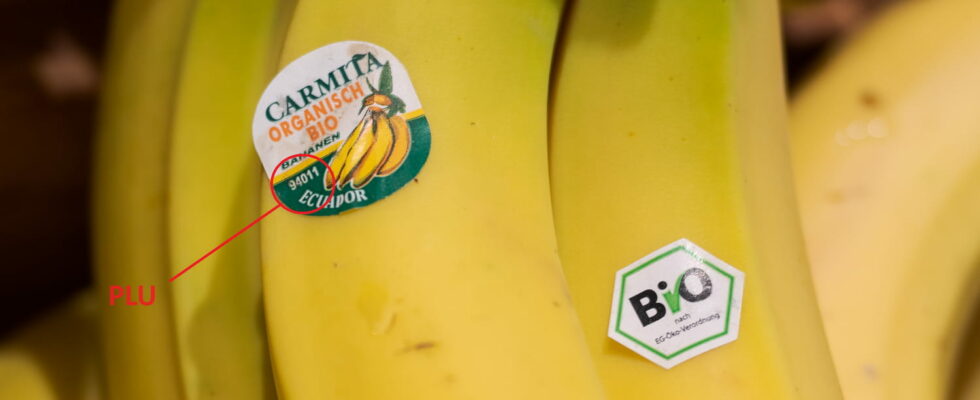Look to see if you see a “9”.
We rarely pay attention to it, but a small label is generally stuck on fruits and vegetables sold in supermarkets in many countries, including France. A multi-digit code is hidden there which has a very specific meaning. This is an international code called in mass retail jargon “PLU” for Price Look Up which can be translated into French as “price search code”. In existence since 1990, this code is not chosen at random. It’s‘IFPS (International Federation for Produce Standards) which prioritizes and assigns codes to each product based on various attributes, making it easier to control inventory and prices at store checkouts. “Without a referencing or scanning system, cashiers would have to know what variety and product they have in front of them, including knowing whether it is organic, which is, obviously, extremely difficult, if not impossible, to do. visu”indicates Jane Proctor, president of the IFPS, in an email to AFP in December 2022.
Although it is largely used by cashiers and professionals in the sector, this code can also provide valuable information to the consumer:
► In most cases, the code is 4 digits long and begins with a 3 or 4, which means that the fruit or vegetable was produced conventionally and may or may not have been grown using fertilizers or in contact with pesticides (they must be washed or peeled well)
► Sometimes, a fifth number – 9 – is placed in front of this code and indicates that the product is “organic” (like the bananas in the photo on the right).
► The following figures are then determined by the IFPS arbitrarily depending on the size, type and variety of the product. For example, code “4132” refers to a small Gala apple, code “4134” refers to a large Gala apple, code “4138” indicates a small Granny Smith apple.
This coding system is voluntary and not mandatory. Internationally, there are currently more than 1,400 PLU codes affixed to fruits, vegetables, nuts and aromatic herbs sold in bulk (not packaged, editor’s note). All existing PLU codes used worldwide can be viewed on the PLU code search page from the IFPS website.
Be careful, several misleading messages are circulating on social networks such as Facebook explaining that 5-digit codes starting with the number 8 indicate a genetically modified fruit or vegetable. This is false, denies the IFPS in a statement published in January 2023, recalling that the cultivation of GMOs for commercial purposes has been prohibited in France since 2008.Although codes with an “8” prefix (83000 to 84999) were once intended to be reserved for GMOs (fruits and vegetables), these codes were ultimately never used in retail.“, specifies the Federation. It was decided that over the next few years, the 8 would be used as a prefix but it will not have any particular meaning. “Numbers 83000 to 84999 will be assigned once the 3000 and 4000 series are sold out. There is no intelligence built into this prefix [qui ne] will represent nothing in particular“, we can read on the website of the Federation, which over time needs to increase the number of references in the face of the exponential number of products sold on the shelves.
